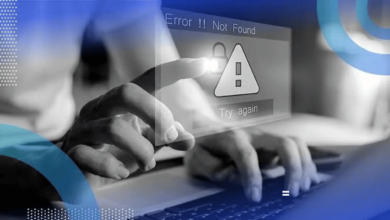
In the ever-evolving global business landscape, compliância—Portuguese for “compliance”—has emerged as a cornerstone of corporate responsibility and ethics. It signifies more than mere adherence to laws and regulations; it encompasses a commitment to ethical practices, data protection, and sustainable operations. This guide delves into the multifaceted nature of compliance, its benefits, challenges, and the future trajectory of compliance strategies, integrating the concept of compliância naturally into each section.
The Dynamic Nature of Regulatory Compliance
The regulatory environment for businesses is dynamic. With laws and regulations frequently changing, companies must remain nimble to navigate this shifting terrain. Regulatory compliância ensures adherence to legal standards, but it also requires organizations to engage in continuous monitoring and adaptability. This dynamism is particularly pronounced in sectors like finance and healthcare, where evolving regulations necessitate innovative compliância approaches.
Beyond Legal Obligations: The Ethical Imperatives of Compliância
Ethical compliância extends beyond the legal requirements, embedding honesty, transparency, and fairness into the corporate DNA. It’s about cultivating a culture that values ethical considerations as much as it does profitability. This moral stance is morally right and advantageous, enhancing a company’s reputation and contributing to a positive work culture and long-term sustainability.
Gaining a Competitive Edge Through Compliância
Far from being a mere regulatory hurdle, compliância can significantly distinguish a company in the marketplace. Committing to ethical and legal standards can make a business more attractive to customers and partners, who increasingly prioritize corporate responsibility. Moreover, a robust compliância framework can streamline operations and reduce risks, increasing efficiency and productivity.
The Role of Technology in Streamlining Compliance Processes
The integration of technology into compliância processes offers a double-edged sword. On one hand, advancements such as AI, machine learning, and blockchain can automate and enhance the efficiency of compliance operations. Conversely, these technologies introduce new challenges concerning data security and privacy. Balancing the benefits of technological innovation with the need to safeguard sensitive information is a crucial aspect of modern compliância strategies.
Addressing the Financial Implications of Compliância
Implementing and maintaining a compliância program can be costly, particularly for smaller businesses. However, these expenses should be viewed not merely as a financial burden but as an investment in the company’s future stability and integrity. Effective compliância management can mitigate risks, avoid legal penalties, and ultimately contribute to a company’s long-term profitability and reputation.
The International Dimension of Compliância
For multinational corporations, compliância is a global affair that involves navigating multiple countries’ legal and cultural landscapes. Considering the diverse regulatory environments and cultural practices worldwide, this global perspective requires a nuanced approach. Effective international compliância strategies involve legal expertise, cultural sensitivity, and adaptability.
The Future of Compliância: Evolving Challenges and Opportunities
As businesses and technologies evolve, so too will the landscape of compliância. The future of compliância will likely be characterized by increased complexity and the need for more proactive and technologically sophisticated approaches. Staying ahead of regulatory changes, harnessing the power of technology for compliância purposes, and fostering an ethical corporate culture will be key to navigating the future of compliância.
Tangible Benefits of Robust Compliância Programs
Adhering to compliância protocols mitigates legal risks and offers tangible business benefits. Enhanced operational efficiency is one such advantage. Organizations can streamline their operations by establishing clear guidelines and procedures, minimizing waste and redundancy. Furthermore, companies prioritizing compliância often find it easier to secure financing and partnerships, as their commitment to compliance demonstrates reliability and stability to potential investors and partners. These strategic advantages underscore the importance of viewing compliância not as a burden but as a catalyst for business optimization and growth.
Overcoming Compliância Challenges in Diverse Teams
Implementing effective compliância measures in a globalized business environment, particularly within diverse teams, presents unique challenges. Cultural differences can lead to varied interpretations of compliance standards and ethical practices. Organizations must foster an inclusive culture that promotes open dialogue and mutual respect to bridge these gaps. Tailoring compliância training programs to accommodate diverse perspectives and learning styles is crucial for ensuring all employees understand and commit to the organization’s compliância objectives. Regular feedback loops and adaptive learning modules can aid in this process, ensuring that compliância education is an ongoing journey rather than a one-time initiative.
Strategies for Embedding Compliância into Corporate Culture
For compliância to be truly effective, it must be woven into the fabric of the company’s culture. Leadership plays a critical role in this process. When leaders demonstrate a commitment to compliância through their actions and decisions, it sets a tone that resonates throughout the organization. Moreover, integrating compliância into business strategies and goals can further reinforce its importance. This alignment ensures that compliância is not seen as an external imposition but as an integral part of business success. Encouraging employee engagement in compliância discussions and decision-making processes also enhances ownership and accountability across all levels of the organization.
Enhancing Stakeholder Trust through Compliância
Trust is a cornerstone of any successful business, and effective compliância strategies are pivotal in building and maintaining this trust. Stakeholders, including customers, employees, and partners, are increasingly vigilant about the ethical standards and legal compliance of the organizations they associate with. Companies can reinforce stakeholder confidence in their operations by proactively communicating compliance efforts and achievements. Transparent reporting mechanisms, such as sustainability reports and compliance audits, are tangible evidence of a company’s commitment to high ethical and legal standards, fostering a strong foundation of trust.
Compliância as a Driver for Innovation
While compliância is often viewed through the lens of adherence to existing laws and regulations, it can also serve as a powerful driver for innovation. Companies are motivated to explore new technologies, processes, and business models to meet and exceed compliance requirements. For instance, environmental regulations may spur the development of greener technologies, while data protection laws can lead to innovations in cybersecurity. This perspective shifts compliância from a reactive obligation to an active competitive advantage and market differentiation source.
The Role of Compliância in Risk Management
Effective risk management is critical for the longevity and prosperity of any organization, and compliância is a key component of this process. A robust compliance program can prevent significant financial and reputational damage by identifying and addressing potential legal and ethical risks before they escalate. Regular risk assessments and proactive compliance measures enable organizations to navigate the complex regulatory environment confidently and securely. Moreover, a culture of compliance facilitates a more resilient organizational structure capable of responding to unforeseen challenges with agility and integrity.
Frequently Asked Questions (FAQs)
What is compliância, and why is it important?
Compliância refers to the adherence to legal regulations, industry standards, and ethical practices within business operations. It’s crucial for maintaining legal and moral integrity, protecting the company’s reputation, and ensuring operational efficiency.
How can companies stay agile in the face of changing regulations?
Staying agile involves continuously monitoring regulatory changes, investing in compliância training and technology, and developing a culture that values adaptability and ethical practices.
What role does technology play in compliance management?
Technology streamlines compliância processes through automation, improves data accuracy, and can enhance the efficiency of audits and monitoring. However, careful management is also required to address data security and privacy concerns.
Why is ethical compliância considered as important as legal compliância?
Ethical compliância goes beyond legal requirements to embrace honesty, transparency, and fairness principles. It builds stakeholder trust, contributes to a positive corporate culture, and supports sustainable business practices.
What are the main challenges multinational companies face in compliância?
Multinational companies must navigate diverse regulatory environments, cultural differences, and varying legal standards across the countries they operate in




